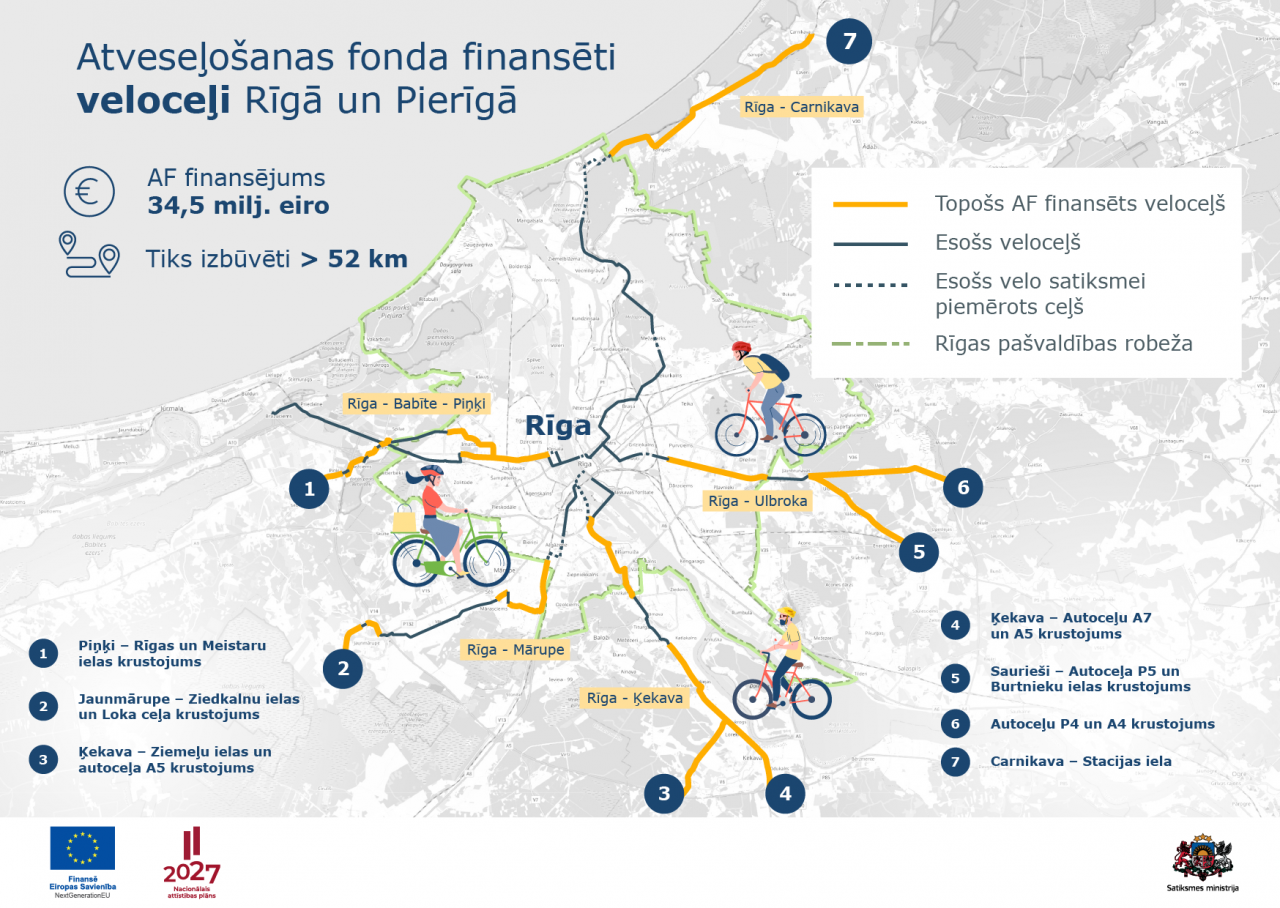Ministry of Finance: Cohesion Policy Funding Provides the Most Significant Investments in Latvia
On Tuesday, September 11th, Deputy State Secretary of the Ministry of Finance in matters of the European Union (EU) funds Armands Eberhards has met with the reporters of the European Economic and Social Committee (EESC) in order to introduce them more thoroughly with cohesion policy matters in Latvia.
”Cohesion or growth policy funding in the amount of 3,2 billion lats in 2007– 2013 has provided the most significant investments in Latvia and constitute 70% from the total public funding. Due to these investments living standard of Latvia has substantially approximated to EU average level,” emphasized Deputy State Secretary in matters of the European Union (EU) funds Armands Eberhards.
For example, in 2004 gross domestic product (GDP) per capita in Latvia was 46% from the average thereof in the EU but in 2011 it increased up to 58% from average GDP within the EU. Estimated impact of EU funds on GDP ranges from 2 percentage points in 2004 to 8,5 percentage points in 2011 and less than 8 percentage points this year. According to research performed by Stockholm School of Economics in Riga return on 1 invested lat of EU funds is on average 12 lats.
At present the seven-year planning period for 2007-2013 of EU cohesion policy is coming to an end and intense negotiations on EU multiannual budget for 2014– 2020 are being held. The current offer to Latvia is by 0,6 billion euro less than the allocation provided in 2007– 2013. For comparison: using 0,6 billion euro it is possible to electrify rail transit system of Latvia what would increase the competitiveness and effectiveness of the rail corridor, create new jobs and substantially reduce the negative impact on the environment.
During the period from 2008 until 2010 there has been decline in GDP of 20% in Latvia, as a result of which Latvia is offered smaller envelope of the cohesion policy, taking into account that ceiling applied to cohesion policy funding is 2,5% from GDP. In consequence Latvia is being punished now for its’ fiscal discipline, which in the years of the crisis meant more rapid decline in GDP, but in the future – more stable ground for growth, opposite to Europe where economic crisis is protracted. Such situation is not acceptable. Similar situation is also in Lithuania, Estonia and Hungary. Likewise estimating allocation of funds per one kilometre, Latvia currently has the smallest proportion of the funding allocated among all EU Member States.
Latvia still encounters substantial challenges in order to ensure economic development, inter alia, Latvia is one of the least populated countries in Europe, thus the development of basic infrastructure requires proportionally higher costs than in more densely populated countries.
At the moment there is maximum capacity reached in the essential industries for Latvia, for example, metal working, engineering industry, furniture production, food industry, pharmacy and other. In order to continue development, additional investments are necessary to increase capacity.
Though unemployment rate decreases, investments are still necessary to solve such unemployment matters as compliance of labour force with labour market and youth unemployment, which is one of the highest in Europe.
Within EESC’s visit on September 11th and 12th there are meetings with the representatives of the Ministry of Foreign Affairs, Ministry of Finance, Latvian Association of Local and Regional Governments, Latvian Rural Forum, Farmers’ Saeima, Employers' Confederation of Latvia, Latvian Chamber of Commerce and Industry scheduled. Projects financed by EU funds in Ogre region will be visited and discussion with Chairman of the Ogre Region Council will be organised as well. Visit in Latvia is made during preparation of EESC’s report on common strategic framework of the cohesion policy for 2014–2020.
Photos from the meeting
Information prepared by:
Sanda Rieksta
Senior Expert of Communication Division
Tel.: 67095656, sanda.rieksta@fm.gov.lv
